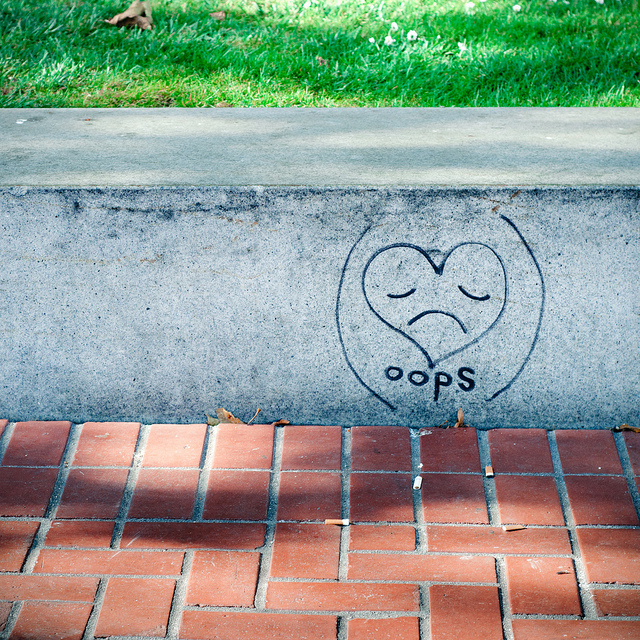For some people, saying, “I’m sorry” is one of the hardest things in the world to do. For others like myself, it’s almost a default phrase.
I admit that I say it a lot. Granted, sometimes it’s called for—like if I’ve hurt someone’s feelings—but more often than not, I apologize for things for which I’m not even responsible. (Just over the weekend, I apologized when someone accidentally hit me with a door.) Even worse, I sometimes find myself apologizing when I really don’t mean it just to keep the peace.
While some may shrug and wonder what is the big deal, the truth is words matter. Much like telling lies, saying, “I’m sorry” when we don’t mean it takes away from the power of such a declaration. As someone who has both given and received heartfelt apologizes, I can honestly say that few phrases on earth hold more power.
Therefore, I have a wish for myself and everyone to stop saying, “I’m sorry” unless we really mean it. Below are some helpful tips I have found useful for putting a kibosh on it in cases where apologizing isn’t called for or needed.
1. Think about what we really mean when we say, “I’m sorry.”
Often times, when I say I am sorry I really mean that I wish that something hadn’t happened or at least not under certain circumstances. That’s not necessarily the same as being sorry.
For instance, I once had a friend who was involved with an emotionally abusive boyfriend for years. When they finally split for good, many of us who knew her told her we were sorry when amongst ourselves, we all agreed that it was for the better. Granted, we were sorry to see her upset and sad, but we weren’t sorry when we heard she had ended the relationship. In retrospect, I wish I had clarified rather than allow her to think that I was sorry to see her out of the relationship.
2. Realize there are many things that we simply aren’t responsible for or are out of our hands.
Cancer, break-ups, deaths, etc. are all bad things. However, how many of us are ever directly or even indirectly responsible for them?
When I learned my father had cancer, the first words that came out of my mouth were, “I’m sorry.” Yes, I was sorry he had this disease. However, I noticed the more that I said I was sorry, the more I felt that somehow it was up to me to do something, anything, about his condition.
Of course, there was nothing that I could do. Rationally, I knew that, but I began to feel that the weight of the disease was now on me. It wasn’t until my dad pointed out that there was nothing either of us could do to stop it that I could begin to get in touch with all the emotions that came with such a diagnosis. Also, knowing it was out of both of our hands was oddly comforting.
3. Acknowledge that being and saying sorry comes without strings attached.
As mentioned, I tend to avoid conflict when I can, and often apologize as a way to keep the peace. However, one thing I am learning is that once I say those words, it isn’t up to me if the person I am saying it to accepts it. Rather, that’s entirely dependent on them. Just like when the best lawyers sometimes lose cases, even the best, most sincerest apologies are not accepted. Sometimes there is good reason for it, and sometimes there is not.
In any case, an apology should never be a quid pro quo: the only reason to say it is because we mean it.
In closing, there are good reasons to apologize and good reasons not to do so. As in the case of all the words we say, our apologies should matter. Insincere or automatic apologies not only cast doubt on our sincerity but on everything else we say and do. Therefore, knowing when not to say we are sorry (when we really aren’t) is just as important is saying it when we are.
In any case, don’t say “I’m sorry” unless it really is applicable to the situation. It’s one habit that many of us truly need to unlearn.
Love elephant and want to go steady?
Sign up for our (curated) daily and weekly newsletters!
Editor: Catherine Monkman
Photo: David Goehring/Flickr


 Share on bsky
Share on bsky





Read 0 comments and reply